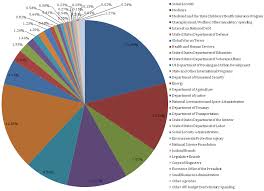
In response to the firing of Juan Williams, here are two wonderful videos of Jon Stewart:
| The Daily Show With Jon Stewart | Mon - Thurs 11p / 10c | |||
| Exclusive - Rally to Restore Sanity and/or Fear Announcement Extended | ||||
| ||||
Pondering seemingly simple political issues

In response to the firing of Juan Williams, here are two wonderful videos of Jon Stewart:
 Does anyone notice a trend that when school's expect a lot from students/staff/parents, that there is always resistance? Michelle Rhee expected a lot from parents, students, unions, and teachers...and "also angered many with teacher layoffs, firings and a brusque style." She improved the student's test scores by expecting more.
Does anyone notice a trend that when school's expect a lot from students/staff/parents, that there is always resistance? Michelle Rhee expected a lot from parents, students, unions, and teachers...and "also angered many with teacher layoffs, firings and a brusque style." She improved the student's test scores by expecting more.

Everyone seems to have an opinion on how to improve education. President Obama recently put out an idea to extend the school year. While that sounds really great, I don't think that in itself will improve education...especially since there are several additional factors in quality education.
One of my chief complaints about extending the school year is when can teachers have vacation? Recently I posted this question on Yahoo! and people just went off on me since teachers have 10-12 weeks during the summer and other holidays scattered throughout the school year. While people may have crazy ideas that teachers do nothing when they are not in school, my point is why can everyone else decide when they take a day off. If a teacher gets married, they cannot have a three-day honeymoon unless it is scheduled around their work schedule. Also, people have this crazy idea they can pull their students out of school to go on vacation; but they hold their teacher to a higher standard and even expect the teacher to adequately teach their students while they are absent.
While reading several responses on the Yahoo! thread, I also found out that many people assume that teachers work only between 9 am and 3 pm. I have no idea where they came up with this work schedule; I believe students/teachers are normally in school an hour or two more than the assumed six hours. Also, teachers have several other duties such as grading papers, parent conferences, lesson plans, student club activities, phone calls, normal HR tasks, paperwork, etc. I find this idea that teachers only work while students are in the classroom as ridicules as saying that your local weatherman only works fifteen minutes because that is all you see them on television.
I also find the idea absurd that the teacher's union is the main reason for our education problems. I believe Dave Glover's radio show best described the flaw in this. When a caller mentioned unions, bad teachers, and an under performing school, Dave Glover wondered out loud, "Which came first, the chicken or the egg?" He clarified by asking what would happen if you took all the teachers from the poor performing school and switched them with teachers from an excellent school system. Would the teachers switch roles and the broken still be broken and the excelling school still excel? I believe so since a highly supported teaching staff will actually improve itself while a broken system needs to fix the problems before just blaming the teachers. Looking at the big picture, a students education is based on more than the teacher in the classroom; people need to look at the administration, government, and the parents.
While I am not a teacher, I also have my input on how to improve education: Let's expect more from the students. We currently don't want anyone to feel bad, so some schools are implementing a policy of the lowest score possible to be a 65%. Some schools have a policy that students that get caught cheating can have an alternative assignment. Some students assume that if they do no do the work, they can't get a zero for the assignment. Some school districts allow students to miss weeks worth of classes and they can make up the work. Some school districts even allow homework to be turned in during the next semester. Some districts blame the teachers for their horrible school policies!
The most you can expect from a student is the least you expect of them.

Taken straight from Sara Murray's Wall Street Journal article:
Efforts to tame America's ballooning budget deficit could soon confront a daunting reality: Nearly half of all Americans live in a household in which someone receives government benefits, more than at any time in history.
At the same time, the fraction of American households not paying federal income taxes has also grown—to an estimated 45% in 2010, from 39% five years ago, according to the Tax Policy Center, a nonpartisan research organization.
A little more than half don't earn enough to be taxed; the rest take so many credits and deductions they don't owe anything. Most still get hit with Medicare and Social Security payroll taxes, but 13% of all U.S. households pay neither federal income nor payroll taxes.

Unfortunately, Obama's policy is the same as any other government official's policy. We have administrative officials (whether superintendants, education commissioners, and politicians) who feel like the weight of the educational system is on their shoulders. So, instead of relying on the teachers to do a good job, these non-teaching suits make policies and tasks that take away the teachers attention away from the classroom. This is their way of saying they did something…whether good or bad.
For those people who say that unions are the problem, getting rid of the union will not solve any educational issues. In fact, the only issue I see with the union is that they cannot easily remove an ineffective teacher. To compound that problem, the schools then make policies (like TPS reports) to make up for not firing teachers. For instance, in a local district a teacher was getting a divorce and lived in his classroom instead of finding an apartment. Instead of firing the teacher, the district spent $$$$ to rekey all the schools. This just an example of how schools make bad and broad policies to cover-up bad actions.
I believe the way to make education better is to ask the teachers what they need to help teach the students…I doubt many will say to spend more money. They will mention that they want support/backing from the principals, counselors, and superintendant. They will mention that they want parents to be more involved. They will mention that they want to spend more time teaching and less time doing paperwork. They will mention that they want an effective attendance policy. Some teachers will say we need to expect more from our students. Most teachers will even say that there needs to be a better process to remove ineffective teachers.
Personally, I don’t like the idea of basing a teacher’s salary on how well the students perform. Some classrooms are filled with brilliant students while others are filled with special-needs students while others are filled with gang members. This policy is similar to basing your salary on how well your neighbor’s students perform…you have some influence—but not a whole lot.
Finally, remember that the most we can get out of our students is the least we expect of them.

According to this website, the national debt is $12,691,221,577,248.59 or about $41,191.12 per person...but not everyone pays the same amount since there are several tax brackets. Here is a simple breakdown of how much each person pays in taxes based upon their income level:
| Number of Returns with Positive AGI | Income Taxes Paid ($ millions) | Group's Share of Income Taxes | Income Split Point | Average Tax Rate | |
| All Taxpayers | 141,070,971 | $1,115,504 | 100% | 12.68% | |
| Top 1% | 1,410,710 | $450,926 | 40.42% | > $410,096 | 22.45% |
| Top 2-5% | 5,642,839 | $225,367 | 20.20% | > $160,041 | 20.53% |
| Top 6-10% | 7,053,548 | $118,139 | 10.59% | > $113,018 | 12.66% |
| Top 11-25% | 21,160,646 | $171,443 | 15.37% | > $66,532 | 9.43% |
| Top 26-50% | 35,267,743 | $117,368 | 10.52% | > $32,879 | 7.01% |
| Bottom 50% | 70,535,485 | $32,261 | 2.89% | < $32,879 | 2.99% |
Using simple mathematics, we can calculate how much each group must pay to reduce the debt to zero. Of course, this does not include any corporate taxes…but then it doesn’t include any state or local taxes.
| Number of Returns with Positive AGI | Group's Share of Income Taxes | Owed | |
| Top 1% | 1,410,710 | 40.42% | $3,636,319.13 |
| Top 2-5% | 5,642,839 | 20.20% | $454,315.06 |
| Top 6-10% | 7,053,548 | 10.59% | $190,542.46 |
| Top 11-25% | 21,160,646 | 15.37% | 92,182.48 |
| Top 26-50% | 35,267,743 | 10.52% | $37,856.59 |
| Bottom 50% | 70,535,486 | 2.89% | $5,199.88 |
 Fifty-one percent of the private economy is today owned or controlled by the federal government. Before September of 2008 and for all the previous history of this country, one hundred percent of our economy has been private as America. But since September 2008 with the TARP bailout, that was under George W. Bush, that was $700,000,000,000; from that point forward we watched government take over one industry after another. We purchased, the government, purchased large banks, the largest insurance company in the United States, AIG, Freddie and Fannie, the secondary mortgage market, which means the United States government now owns over fifty percent of all private home mortgages. We still own Chrysler and GM the largest car companies. We own the student loan industry and now we control the health sector which is another eighteen percent of the economy. You add all that up, 51 percent of the economy is now owned or controlled by the federal government.
Fifty-one percent of the private economy is today owned or controlled by the federal government. Before September of 2008 and for all the previous history of this country, one hundred percent of our economy has been private as America. But since September 2008 with the TARP bailout, that was under George W. Bush, that was $700,000,000,000; from that point forward we watched government take over one industry after another. We purchased, the government, purchased large banks, the largest insurance company in the United States, AIG, Freddie and Fannie, the secondary mortgage market, which means the United States government now owns over fifty percent of all private home mortgages. We still own Chrysler and GM the largest car companies. We own the student loan industry and now we control the health sector which is another eighteen percent of the economy. You add all that up, 51 percent of the economy is now owned or controlled by the federal government.Minnesota Congresswoman Michele Bachmann on 97.1 FM Talk on 3/29/2010.
 The different world views that we have between progressives and conservatives is that liberals believe that their definition of freedom is entitlements while conservatives define it by limited government.
The different world views that we have between progressives and conservatives is that liberals believe that their definition of freedom is entitlements while conservatives define it by limited government.Missouri Senator Jim Lembke on 97.1 FM Talk on 3/26/2010.